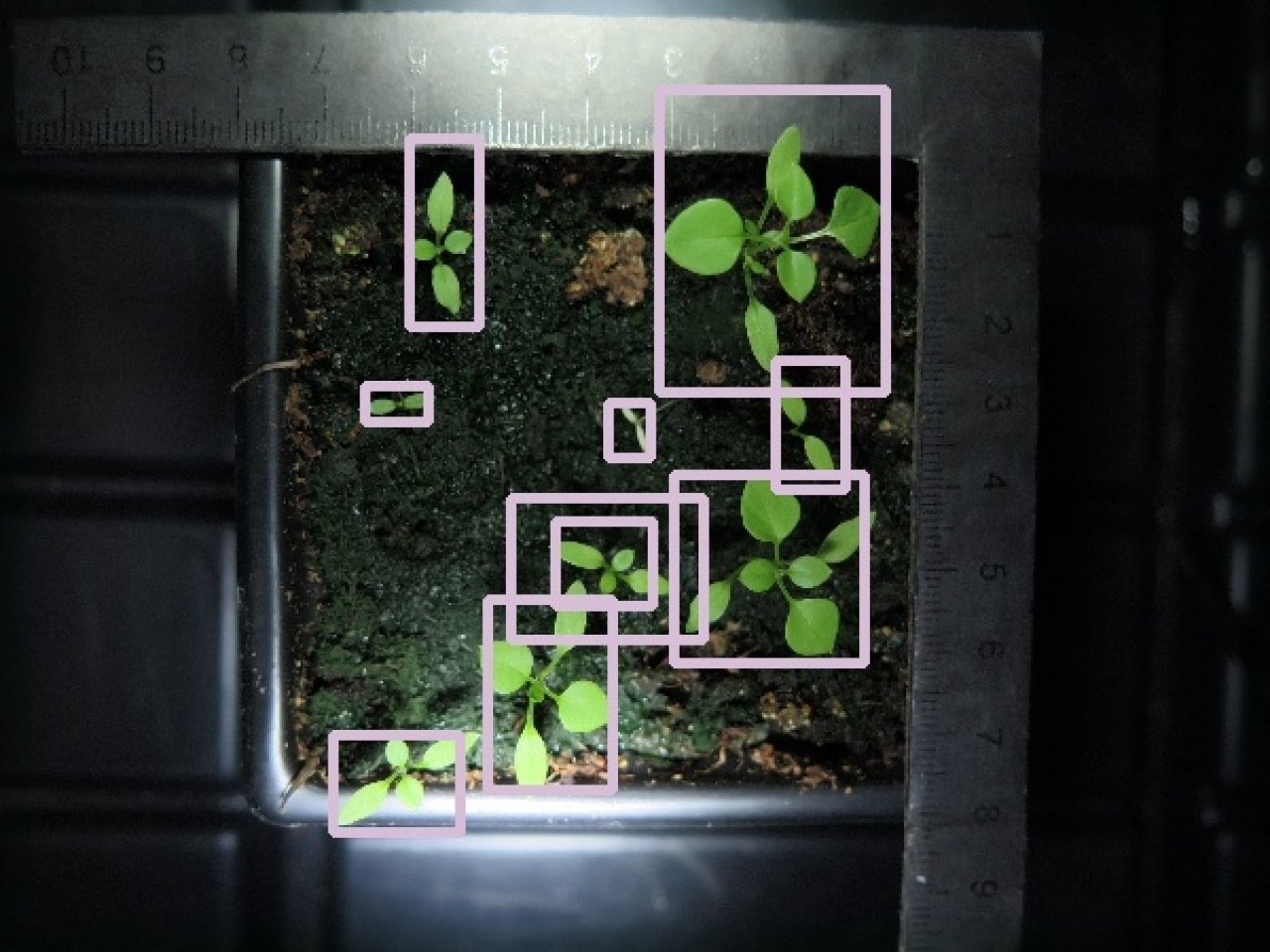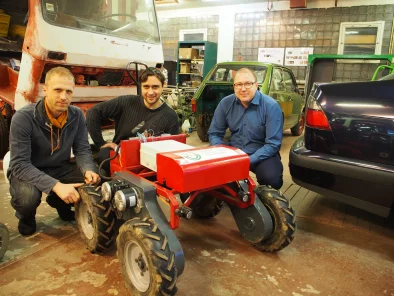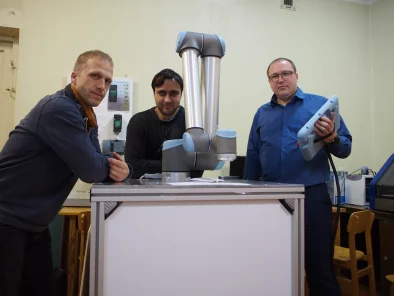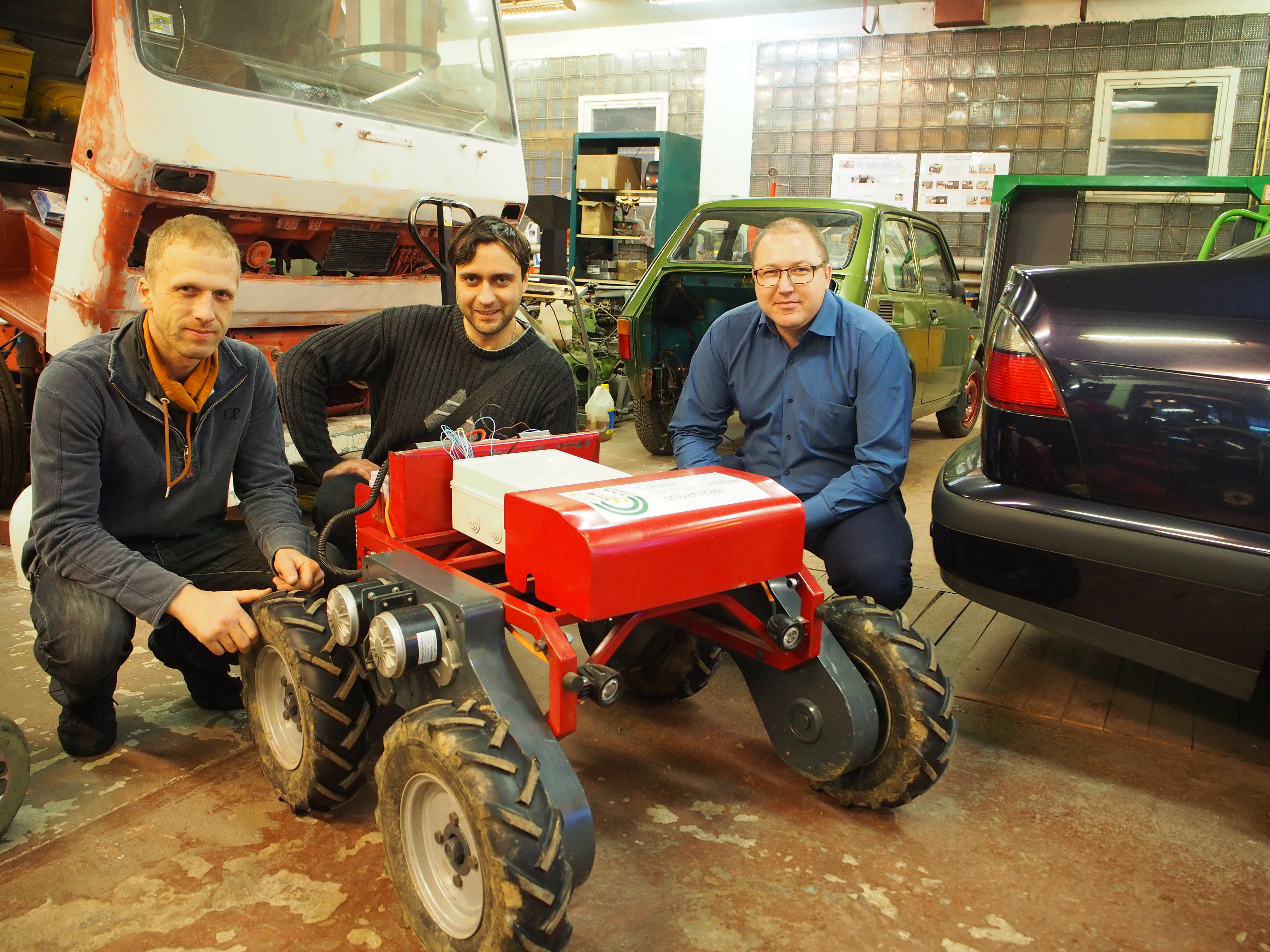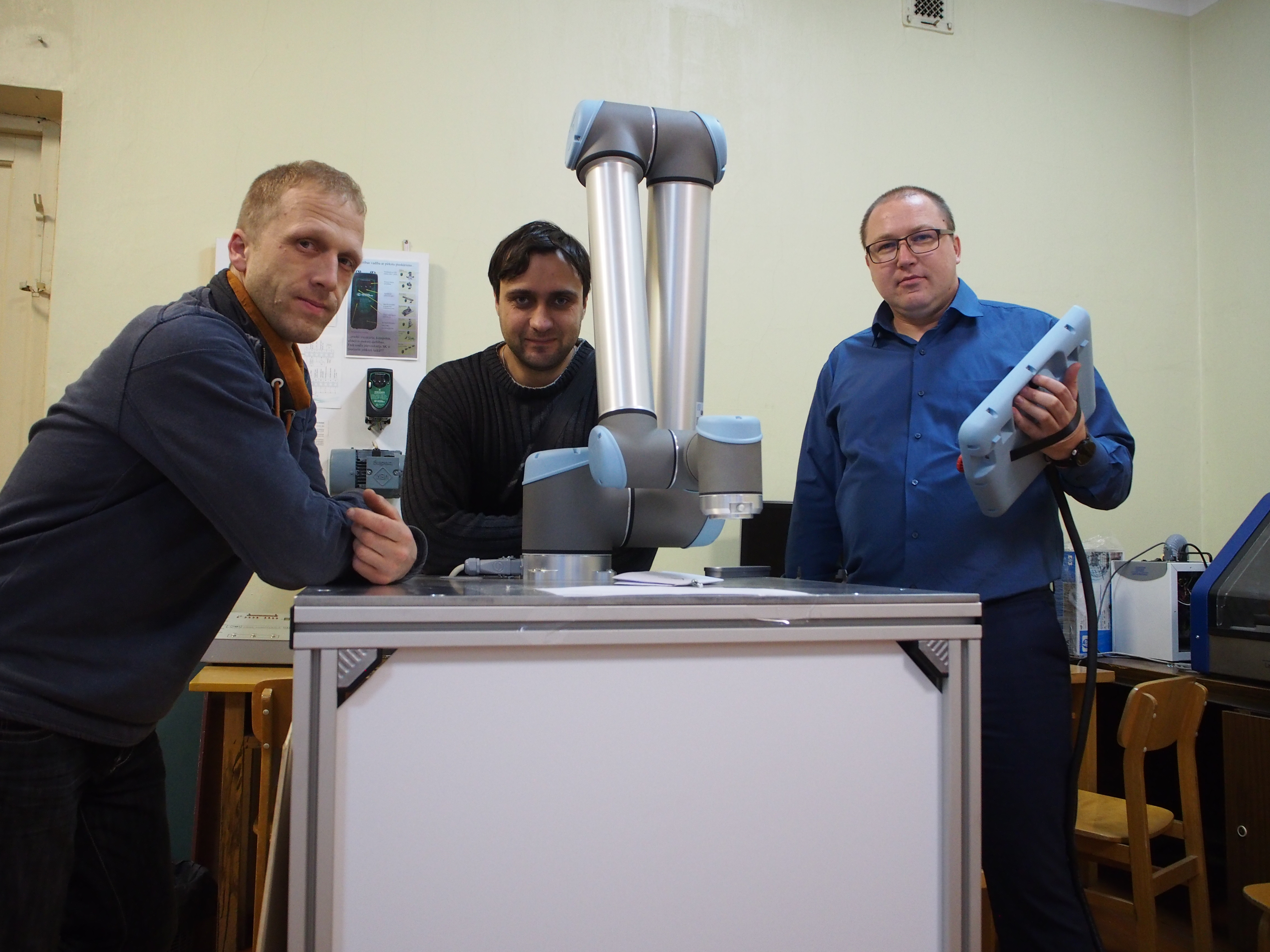"Where were you, when I was little and I had to weed out those long beet crops?" - expressed one of the television operators that came to see Latvia University of Agriculture's (LUA) weed killer robot, or simply Robis, as the researchers call it. It is a a driving robot that can distinguish between cultivated plants
and weeds and destroys them in a few seconds - large weeds are pulled out with a rotating motion, while smaller weeds are burned in the ground.
Agrihorts researchers worked on this project for about a year and a half at the LUA. The researchers are proud of the robot's ability to identify weeds. The robot has a unique AI-based programme - the computer has been trained to remember what several cultivated plants and weeds look like. When an image is taken, the two types of plants are distinguished with a fairly high degree of accuracy. Potentially, the robot could work at the same pace as a human, averaging 200-600 m per hour.
Compared to other devices on the market, Robis is more accurate - where weed and cultivated plant
would grow next to each other, another device would pull both, but Robis won't.
Farmers and researchers point out that weeding, this manual work, is becoming more expensive and harder to access every year, given the Covid-19 conditions and the fact that people are less and less willing to work in agriculture.
The aim of the project is to develop a weed control device that is able to move autonomously in the field, identify weeds and distinguish them from the crop, as well as with a high-energy laser or precisely positioned mechanical unit, destroy the weed or significantly interfere with its further growth.
As the demand for organic food around the world increases, so does the area of agricultural land where various crops are grown without the use of chemical plant protection products. In 2016, the market for organic products in the EU has grown by 11% (compared to 2015) and reached 30.7 billion euros. At the same time, significant resources are spent every year on weed control, both on organic farms and on farms using integrated farming technology. Organic farms mainly use various mechanical methods to control weeds, such as cultivation or milling, and, for example, the cultivation of organic vegetables still uses a relatively large number of people's handiwork. Weeding costs per hectare can be 400-1000 EUR per season, depending on the crop.
Total investment: EUR 472 500
